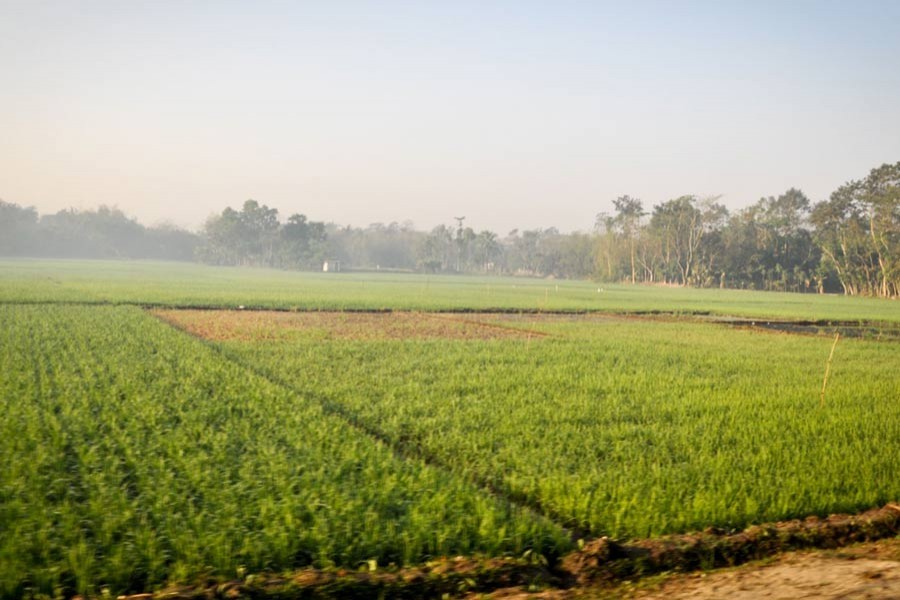Despite the commendable growth of agricultural produce in the country-- almost to the extent of self-sufficiency, food security continues to claim the top priority to not only ensure food for all but also to sustain the growth as well as pursue progress in many socio-economic spheres. The main concerns of agricultural economists and policymakers at this time are poverty reduction, farmers' income and welfare increase, fairness improvement and sustainable development in the global food value chain. The concerns spare no scope for laxity, as it is a continuously engaging process to have all stakeholders alert, and for all the time.
It is heartening to note that severe or moderate food insecurity in Bangladesh gradually reduced 14.5 per cent during September-October of 2021 from 45.6 per cent of June 2020, according to available data. However, contrary to public perception, food security is not just about growing enough staple to mitigate hunger, but as well to sufficiently increase production of all varieties of food-- from staple to vegetables to spices. It is here that the need, albeit urgency of diversifying agriculture comes up as a whole package to fulfilling the pre-requisites of food security.
This aspect was strongly highlighted at a webinar held last week where speakers emphasised diversification of agricultural production through disbursing more farm credit, promoting contract farming and investing in research to increase the productivity of rice, non-rice crops, livestock, and fisheries. They also suggested engaging the private sector for developing agricultural value chains, policy intervention for producing high-value and high-nutritive foods and enhancing crop intensity against the backdrop of decreasing arable lands. No doubt, such inclusive approach to improve the food systems can also help achieve all related targets of the SDGs in a comprehensive manner. The webinar titled 'Mobilising Action for Food System Transformation in Bangladesh' was jointly organised by the Economic Development Research Organisation (EDRO), the Financial Express, and the Daily Banik Barta. Speaking on the occasion, State Minister for Planning stressed the need for research to formulate evidence-based policies for further development of the country's agriculture. Terming allocation of 0.6 per cent of the GDP for research and innovation very low, he said the allocation for research in the country should be at least 1.0 per cent of the GDP. Speakers at the webinar mentioned that although rice is the main staple in the country, and 64 per cent of the calorie intake of the people comes from rice, it is not a very good source of protein and other minerals, and hence there is a need to diversify the dietary practice of the people. Of the total farmers in the country, over 54.5 per cent grow rice, which shows that the country's agricultural production diversification needs to go a long way.
The country's agriculture scientists are well aware of the need for crop diversification and raising crop intensity as well as the increasing necessity of growing more horticulture and vegetable produce by following evidence-based findings from research. The relevant authorities may consider a medium- to long-term plan on how to go about, with facilitating services from the government.


